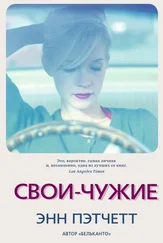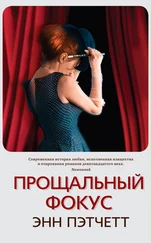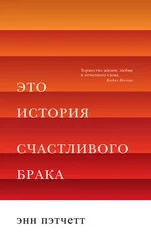She was in her room, sitting on the window seat with her long legs straight out in front of her. She had a book in her lap but she wasn’t reading it, she was looking out at the garden. The room was angled to the west while not facing west directly, and the way the last bit of light fell over her, she looked like a painting.
I handed her the orange and she dug in her nails to open it up. She bent her knees so I could sit down in front of her. “This doesn’t bode well for us, Danny,” she said. “You might as well know that.”
Six weeks after she left for her freshman year at Barnard, Maeve was summoned back to Elkins Park for the wedding. Our father married Andrea in the drawing room beneath the watchful eyes of the VanHoebeeks. Bright dropped handfuls of pink rose petals on the Spanish Savonnerie rug while Norma leaned against her mother and held two wedding bands on a pink velvet pillow. Maeve and I stood with the thirty or so guests. That was when we learned that Andrea also had a mother, a sister, a brother-in-law who sold insurance, and a handful of friends who tipped back their heads to gape at the dining-room ceiling while the cake was being served. (The dining room ceiling was painted a shade of blue both deep and intense, and was covered in intricate configurations of carved leaves that had been painted gold, or, more accurately, the leaves had been gilded. The gilt leaves were arranged in flourishes which were surrounded by circles of gilt leaves within squares of even more gilt leaves. The ceiling was more in keeping with Versailles than Eastern Pennsylvania, and when I was a child I found it mortifying. Maeve and my father and I made a point of keeping our eyes on our plates during dinner.) Sandy and Jocelyn served champagne at the reception, wearing matching black uniforms with white collars and cuffs that Andrea had bought for the occasion. “We look like matrons at a women’s penitentiary,” Jocelyn said, holding up her wrists. Maeve came back to the kitchen every time another bottle of champagne needed to be opened because she had announced with great bravado that popping corks was pretty much the first thing she’d learned to do in college. Champagne was just a loaded gun as far as Sandy and Jocelyn were concerned.
The wedding was held on a fall day of such brightness that the light seemed to be coming not just from the sun but from the grass and the leaves. All of the windows in the back of the house were triple hung and went to the floor, and for the occasion my father took the trouble of opening every last one of them, something I’d never seen done before. Open, the windows made a dozen doors onto the back terrace leading to the pool, which had been filled with water lilies. Who knew that water lilies could be rented for the day? Everyone was going on about how beautiful it all was: the house and the flowers and the light, even the woman who played the piano in the observatory was beautiful, but Maeve and Sandy and Jocelyn and I knew that all of it was wasted.
Our father couldn’t marry Andrea at Immaculate Conception or ask Father Brewer to come to the house to marry them because he was divorced and she wasn’t Catholic, which made it seem like they weren’t really getting married at all. The ceremony was performed by a judge that none of us knew, a man my father had paid to come to the house to do the job, the way you’d pay an electrician. When it was over, Andrea kept holding up her glass to the light, remarking on how the champagne matched the color of her dress exactly. For the first time I was able to see how pretty she was, how happy and young. My father was forty-nine on the day of his second wedding, and his new wife in her champagne satin was thirty-one. Still, Maeve and I had no idea why he married her. Looking back, I have to say we lacked imagination.
* * *
“Do you think it’s possible to ever see the past as it actually was?” I asked my sister. We were sitting in her car, parked in front of the Dutch House in the broad daylight of early summer. The linden trees kept us from seeing anything except the linden trees. I had thought the trees were enormous when I was young but they’d kept right on growing. Maybe one day they’d grow into the wall of Andrea’s dreams. The car windows were rolled down and we each kept an arm out—Maeve’s left, my right—while we smoked. I had finished my first year of medical school at Columbia. It would be the summer we would quit smoking, more or less, but on this particular day we were still only thinking about it.
“I see the past as it actually was,” Maeve said. She was looking at the trees.
“But we overlay the present onto the past. We look back through the lens of what we know now, so we’re not seeing it as the people we were, we’re seeing it as the people we are, and that means the past has been radically altered.”
Maeve took a drag off her cigarette and smiled. “I love this. Is this what they’re teaching you in school?”
“Introduction to Psychiatry.”
“Tell me you’re going to be a shrink. It would be so beneficial.”
“Do you ever think about going to see a psychiatrist?” This would have been 1971 and psychiatry was very much the rage.
“I don’t need a psychiatrist because I can see the past clearly, but if you need to practice on someone, then by all means, be my guest. My psyche is your psyche.”
“Why aren’t you at work today?”
Maeve looked completely surprised. “What kind of stupid question is that? You just got here. I’m not going to work.”
“Did you call in sick?”
“I told Otterson you were coming home. He doesn’t care when I’m there. I get everything done.” She tapped her ashes out the window. Maeve had worked as a bookkeeper for Otterson’s ever since she’d graduated from college. They packaged and shipped frozen vegetables. My sister had won the math medal at Barnard. She had a higher cumulative GPA than the guy who’d won the math medal at Columbia that year, a sweet fact she learned from the guy’s sister who was also Maeve’s friend. With all of her knowledge and ability, she not only managed the payroll and calculated the taxes, she improved the delivery system, ensuring that bags of frozen corn would be quickly ferried to the grocers’ freezers throughout the Northeast.
“Are you always going to work there? You should go back to school.”
“We’re talking about the past, doctor, not the future. You need to stay on point.”
I tapped at my cigarette. Andrea was the past I wanted to talk about, but Mrs. Buchsbaum came out of her house to check the mail and saw us sitting there. She came straight to my open window and leaned in. “Danny, you’re home!” she said. “How’s Columbia?”
“It’s like it was before, only harder.” I had gone to Columbia as an undergraduate also.
“Well, I know this one is happy to see you.” She nodded her head to Maeve.
“Hi, Mrs. Buchsbaum,” Maeve said.
Mrs. Buchsbaum put her hand on my arm. “You need to find your sister a boyfriend. There’s got to be some nice doctor at the hospital who doesn’t have time to look for a wife. A nice tall doctor.”
“My criteria go beyond height,” Maeve said.
“Don’t misunderstand me: I always love to see her back in the neighborhood, but still, it worries me.” Mrs. Buchsbaum was speaking only to me, as if she and I were in our own private section of the car. “She shouldn’t just be sitting out here by herself. Some people may get the wrong impression. She’s welcome, of course, I don’t mean that.”
“I know,” I said. “It worries me, too. I’ll talk to her.”
“And this one across the street.” Mrs. Buchsbaum gestured vaguely towards the linden trees with her forehead. “Nothing. When she drives by she does not wave. She does not acknowledge that anyone else is here. I think she must be a very sad person.”
Читать дальше
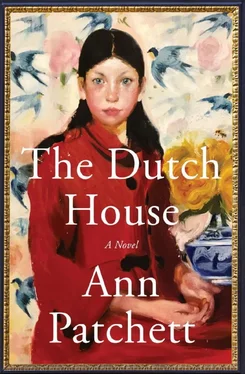
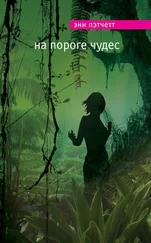

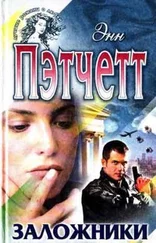
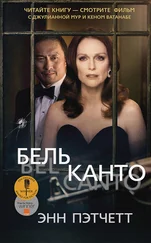
![Энн Пэтчетт - Прощальный фокус [litres]](/books/402782/enn-petchett-prochalnyj-fokus-litres-thumb.webp)
